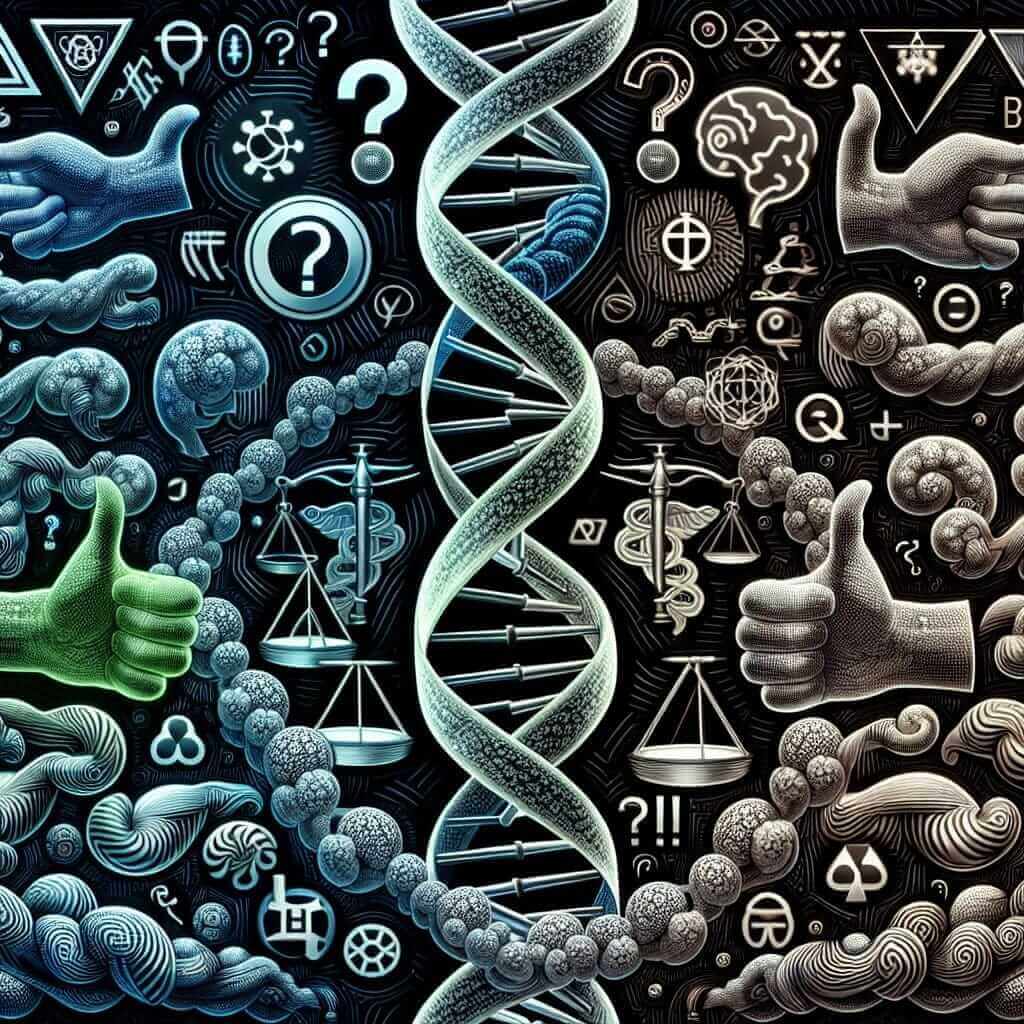The use of genetic engineering is a hotly debated topic, particularly when considering its ethical implications. As aspiring IELTS candidates, understanding this complex issue is crucial for achieving a high score in the IELTS exam, particularly in the Writing Task 2 and Speaking Part 3 sections. This article delves into the ethical implications of genetic engineering, equipping you with the necessary vocabulary, arguments, and examples to excel in your IELTS exam.
Defining Genetic Engineering and its Ethical Implications
Genetic engineering refers to the deliberate modification of an organism’s genetic makeup using biotechnology. While it offers potential benefits like preventing diseases and enhancing crop yields, it raises significant ethical concerns.
Ethical implications refer to the moral questions and potential consequences arising from a specific action or technology. In the context of genetic engineering, these implications encompass:
- Playing God: Some argue that altering the building blocks of life is morally wrong, suggesting humans are overstepping their boundaries and interfering with the natural order.
- Designer Babies: The potential to manipulate genes for desired traits, such as intelligence or physical appearance, fuels concerns about creating a generation of “designer babies” and exacerbating social inequalities.
- Unforeseen Consequences: The long-term effects of genetic modifications are largely unknown, raising concerns about unintended health problems or ecological imbalances.
Illustrative Examples
Let’s examine some examples to illustrate the ethical dilemmas surrounding genetic engineering:
- Genetically Modified Crops: While GMOs can increase food production, concerns exist regarding their potential impact on biodiversity and the rise of herbicide-resistant superweeds.
- Gene Therapy for Hereditary Diseases: The possibility of eliminating genetic diseases like cystic fibrosis is promising, but questions arise about accessibility and affordability for all.
- Cloning: The ethical debate surrounding human cloning is multifaceted, encompassing concerns about individuality, exploitation, and psychological well-being.

Application in the IELTS Exam
Understanding the ethical implications of genetic engineering equips you to answer a wide range of IELTS questions effectively.
Writing Task 2:
- “Genetic engineering is a threat to humanity. To what extent do you agree or disagree?”
- “Discuss the advantages and disadvantages of using genetic engineering in food production.”
Speaking Part 3:
- “What are your views on the ethical implications of genetic engineering?”
- “Do you think genetic engineering should be used to enhance human capabilities?”
In your responses, employ the following strategies:
- Present a balanced view: Acknowledge both sides of the argument, discussing the potential benefits and drawbacks.
- Use topic-specific vocabulary: Incorporate terms like “gene editing,” “bioethics,” “informed consent,” and “genetic diversity.”
- Provide clear examples: Support your arguments with relevant examples from scientific research, current events, or hypothetical scenarios.
- Express your opinion coherently: Clearly state your stance on the issue and provide compelling reasons to support your viewpoint.
Common Errors and How to Avoid Them
- Overgeneralization: Avoid making sweeping statements without sufficient evidence. For instance, instead of stating “All genetic engineering is harmful,” provide specific examples to support your claims.
- Lack of clarity: Define key terms like “genetic engineering” and “ethical implications” to ensure your arguments are well-understood.
- Ignoring counterarguments: Acknowledge and address opposing viewpoints to demonstrate critical thinking and strengthen your own stance.
Practice Makes Perfect
To excel in discussing this complex issue:
- Stay updated: Read articles, watch documentaries, and follow scientific advancements in genetic engineering to expand your knowledge and form informed opinions.
- Practice brainstorming: Regularly brainstorm arguments for and against genetic engineering, focusing on developing clear and concise supporting points.
- Engage in discussions: Participate in debates or online forums to refine your arguments and gain confidence in expressing your views effectively.
Conclusion
Understanding the ethical implications of genetic engineering is crucial for excelling in the IELTS exam, particularly in tasks requiring you to discuss complex societal issues. By familiarizing yourself with the key concepts, arguments, and vocabulary, and practicing your responses, you can confidently tackle any question related to this captivating and controversial topic.
For further exploration of this issue, you can visit our articles on What are the ethical implications of using genetic engineering? and How to answer “What are your views on genetic engineering?” questions. Share your thoughts, ask questions, and let’s delve deeper into this fascinating subject together.